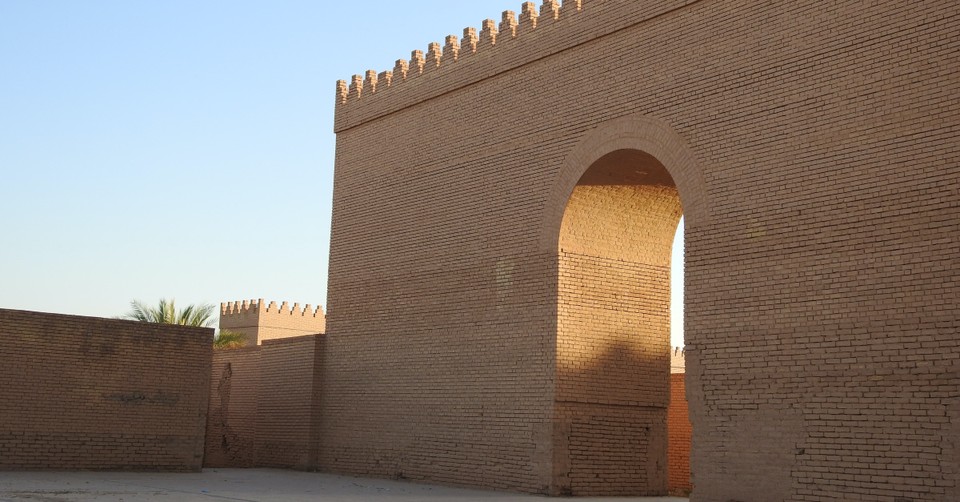3 Things We Should Know about the Babylonian Captivity

The Babylonian captivity was one of the most traumatic events in Israel’s history. Historical theologians say that the trauma lasted until the coming of Jesus. During the reign of King Jehoiachin, Judah was conquered by King Nebuchadnezzar and taken into exile. The captivity is described both in the Hebrew Bible and the Old Testament (2 Kings 24:14). While the Babylonian captivity may seem irrelevant, it carries lessons for us as believers today.
What Was the Babylonian Captivity?
After the death of King Solomon, the nation of Israel split into two separate nations. Ten tribes formed the new nation of Israel, and two tribes formed the nation of Judah. During the next several hundred years, the Northern kingdom of Israel continued idolatry. As a result, God allowed the Assyrians to attack and take over the Northern Kingdom.
The Southern kingdom of Judah lasted for another 134 years, but because of their idolatry, they fell captive to Babylon in 586 B.C. The prophet Jeremiah had warned the people of coming judgment and faithfully urged them to return to the Lord. Yet, the people would not listen, and they continued in idolatry.
2 Chronicles 36:15-17, describes the reason for the captivity, “The LORD, the God of their ancestors, sent word to them through his messengers again and again, because he had pity on his people and on his dwelling place. But they mocked God’s messengers, despised his words, and scoffed at his prophets until the wrath of the LORD was aroused against his people, and there was no remedy. He brought up against them the king of the Babylonians… God gave them all into the hands of Nebuchadnezzar.”
During this time, Daniel, rose to leadership even though he was in captivity (Daniel 1:1-7). The prophet Ezekiel was also led away into captivity (Ezekiel 1:1-2). The backdrop of the captivity gives a clearer understanding of these prophets and the important nature of their call.
The captivity ended in 538 BC when Cyrus the Great gave the Jews permission to return to their homeland. The Old Testament books of Ezra and Nehemiah talk about the period of time following the exile. Ezra encouraged the people to return to the Lord, their Jewish traditions, and to studying the law of Moses.
Why Is Babylon in the Book of Revelation?
In the book of Revelation, Babylon is again mentioned as “Babylon the great, the mother of prostitutes and of the abominations of the earth” (Revelation 17:5). There, Babylon represents a religious and political system that sets itself up against God. The system of thought behind Babylon exalts systems of thinking in contrast to God’s Kingdom, such as power, wealth, pride, and injustice. It represents rebellion against God and His plan for salvation.
Ultimately, we know that Jesus is victorious over the system of Babylon and the evil one. When Jesus finally sets up His kingdom on earth, Babylonian thinking, and worldview will be overthrown for good.
Before then, what can we learn as believers about the Babylonian captivity?
3 Lessons We Can Learn from the Babylonian Captivity
1. God takes idolatry very seriously. Throughout the Old Testament, God reminds His people continually that they are to have no other gods other than Him (Exodus 20:3). Yet over and over, we see the people of God run after idols of some sort or another.
In the New Testament, Jesus said that the greatest commandment was, “Love the Lord your God with all your heart and with all your soul and with all your mind” (Matthew 22:37).
God designed us for intimate fellowship with Him. When we allow other things or people to take first place in our lives, God may allow difficult circumstances to remind us to come back to our first love. However, the promise of 1 Peter 5:10 is also true, “And the God of all grace, who called you to his eternal glory in Christ, after you have suffered a little while, will himself restore you and make you strong, firm and steadfast.”
In Ezra 10, we read how the people experienced a type of revival after returning to Jerusalem. Ezra read the word of God to them and called the people to repentance.
In your life and mine, when we experience some type of captivity, we must return to our first love, seeking God above all else. Then we must ask the Holy Spirit to cleanse us from any form of idolatry. Our hearts need to be wholly His.
2. In captivity, we are often awakened to God’s abiding presence. Though God allows seasons of captivity in the lives of His people, He never abandons them. During the Babylonian captivity, God used mighty men such as Daniel who was fully committed to Him. When Shadrach, Meshach, and Abednego were thrown into the furnace during the Babylonian captivity, Jesus appeared in the furnace with them (Daniel 3:25). His presence never left them.
God continued to pursue the hearts of His people through His prophets. His presence never left them. The prophet Ezekiel was taken captive during the second stage of the captivity (Around 597 BC). His dreams and visions gave hope and called the Jewish people back to the One true God.
When we endure seasons of captivity, we can rest assured, God has not abandoned us. His presence goes with us into captivity. He may be hiding His face or voice for a time; however, He will never stop pursuing us, and He brings good even out of evil.
In Jeremiah 29:10-11, God describes the captivity but then goes on to promise the good that will come after. “This is what the LORD says; ‘When seventy years are completed for Babylon, I will come to you and fulfill my good promise to bring you back to this place. For I know the plans I have for you, declares the LORD, plans to prosper you and not to harm you, plans to give you a hope and a future.”
3. Captivity can be used by God to transform our lives. While captivity is not always a disciplinary method, God promises to use seasons of captivity for His glory and our transformation. (Romans 8:28). Often, in seasons of captivity, we become more aware of His power.
In the New Testament book of Acts, Peter was arrested for sharing the gospel and thrown in prison (Acts 12:1-19). Captivity. But the believers were praying. The night before Peter was to go on trial, an angel of the Lord appeared and set Peter free. When Peter was set free, he said, “Now I know without a doubt that the Lord has sent his angel and rescued me from Herod’s clutches and from everything that Jewish people were hoping would happen” (Acts 12:11).
God used the captivity to strengthen Peter’s faith. But God also used Peter’s captivity to strengthen the faith of the believers who were praying. They needed the reminder that God was attentive to their prayers. He used Peter’s captivity to glorify Himself and transform His people.
Conclusion
The Babylonian captivity was a period in history used by God to cleanse His people from idolatry. However, the system of thought behind Babylon, mentioned in Revelation, can also hold us captive today. We must guard our hearts against every form of idolatry. Ultimately, King Jesus will be victorious over the evil one and his system of thought. In the meantime, we can encourage our hearts that seasons of captivity can be used by God in our lives to cleanse us from idolatry, make us more aware of his presence, and transform us more into the image of King Jesus.
Photo Credit: ©Getty Images/SAFAA ALSARAGNA


Originally published March 27, 2023.





